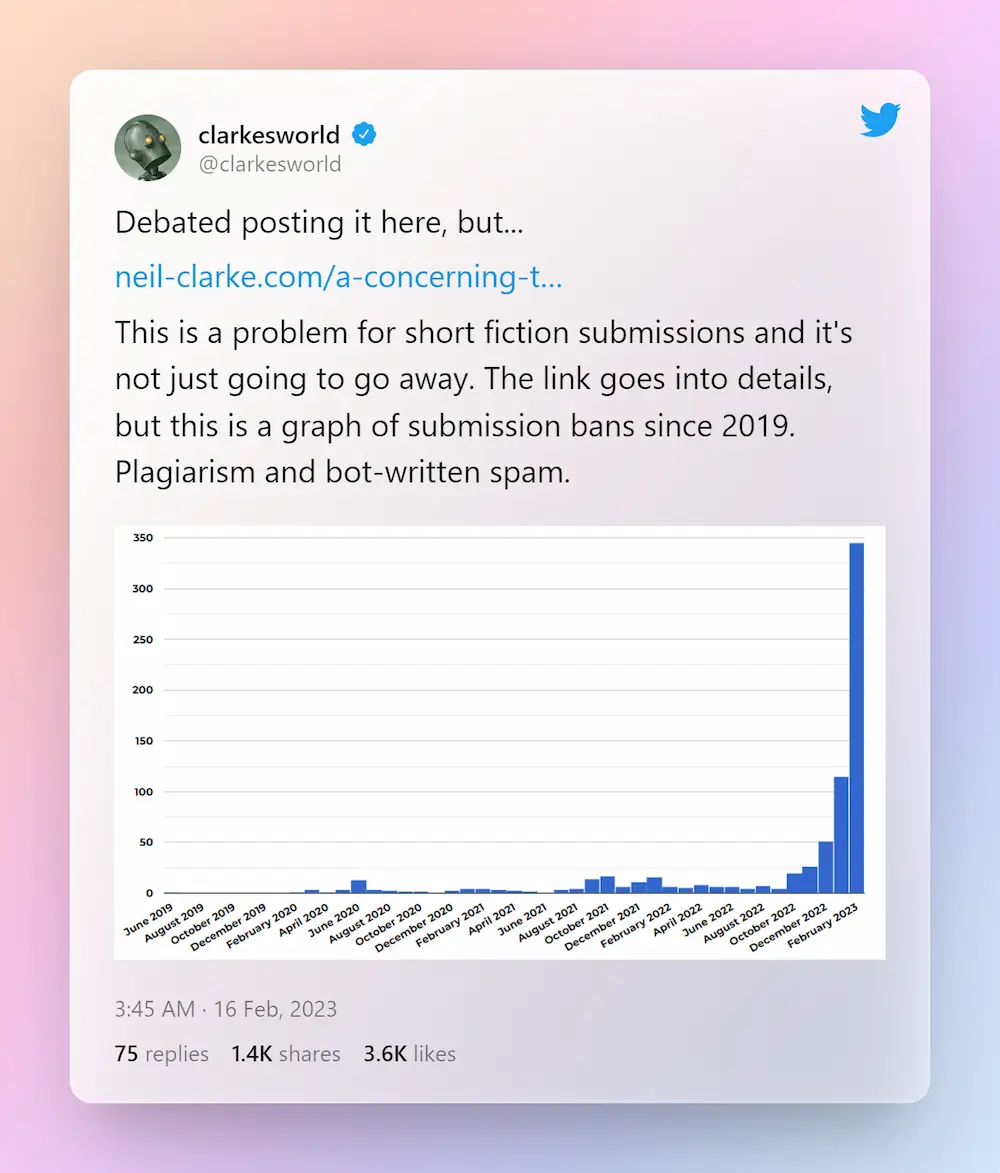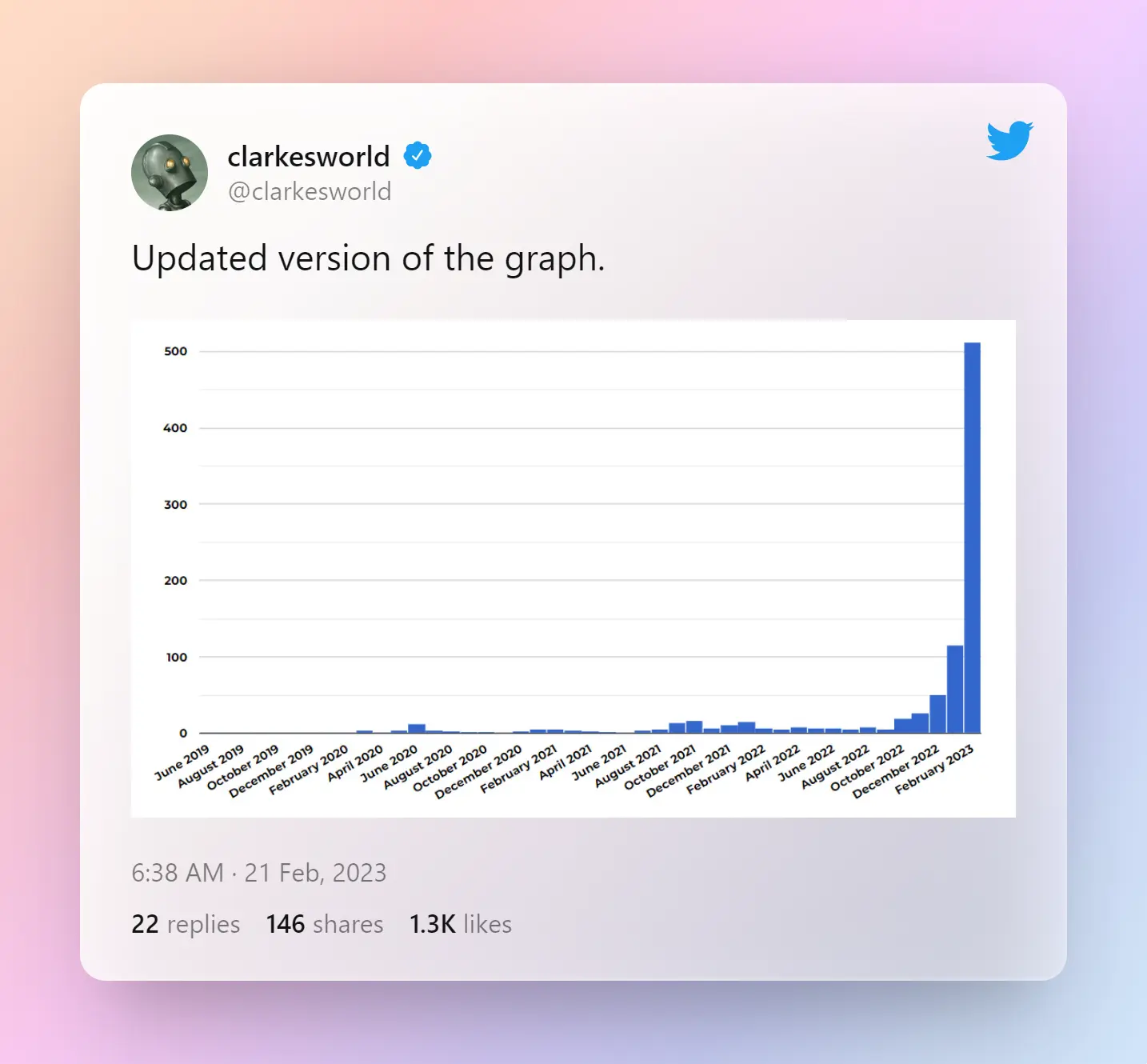The rise of AI-powered chatbots like ChatGPT And Bing AI Chat is disrupting the literary world. Recently, Clarkesworld Magazine, a sci-fi magazine, has temporarily banned short story submissions due to an increase in ChatGPT-generated and AI-generated stories.
Clarke posted in a blog that our publication experienced a rise in plagiarism at the end of last year as AI-powered chatbots caught the public’s eye. Clarkesworld has experienced a huge spike in submissions of short stories. Still, most of the writing is from humans who rely on ChatGPT-like tools to generate text.
Clark did not elaborate on how he discovered ChatGPT-generated writing in his post. He stated that he had “no intention of helping those people become less likely to be caught.” However, he claimed the alleged AI works showed “some very obvious patterns.”
He said, “I can tell you that the number of spam submissions resulting in bans has hit 38% this month.” While rejecting and banning spam submissions is easy, it’s growing at an alarming rate that will require changes. The technology is only getting better, so detection will be more difficult.
AI-generated writing could prevent legitimate human-written works from reaching the prestigious sci-fi publication. Clarkesworld currently prohibits any stories written, co-written, or assisted by AI or tools like ChatGPT.
AI-generated content is likely to flood the magazine, as it pays 12 cents per word for each accepted short story. It’s not about credibility, according to what I can see. It’s all about making quick bucks. Clarke tweeted that this is all they care about.
The magazine could use various software to detect AI-generated content, But these tools can be expensive and lead to false positives. It’s obvious that “business as usual” is not sustainable. I fear that this path will create more barriers for international authors. Clarke stated that short fiction requires these people.
Ironically, after Clarke’s post, the magazine saw a new spike in submissions for sci-fi short stories. This month, the publication banned more than 500 users for using AI to create short sci-fi stories, 350 people more than last week. The magazine has temporarily stopped accepting short stories.
Clarke said that if the field cannot solve this problem, things will break down. Clarke said that the response times would worsen and that it was not something I wanted to consider. It’s not the end of short fiction (please stop with that nonsense), but it will complicate matters.
Related Stories:



